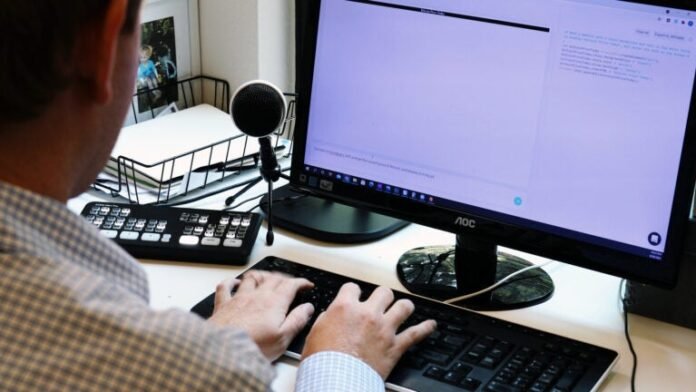Schools
The parents of a Hingham High School senior say AI wasn’t banned when their son used the technology to outline and research a school project.
The parents of a Hingham High School senior are suing their son’s teacher and several school officials in federal court, claiming the student was wrongfully punished last year for using artificial intelligence on a research project.
In a lawsuit first filed in Plymouth Superior Court, Dale and Jennifer Harris allege that the school’s disciplinary actions have marred their son’s academic performance and harmed his college prospects. The lawsuit names Hingham’s acting and former superintendents, high school leadership, the city school committee and a social studies teacher assigned the project in question.
“Artificial intelligence is here to stay,” the Harrises argue in their complaint, later adding, “Although artificial intelligence is a new technology and still emerging, it is widely accepted.”
The background
According to the lawsuit, the Harrises’ son worked with a classmate last fall on a social studies project for a long-running competition known as “National History Day.” The students used AI to prepare the initial draft and research for their project on NBA legend Kareem Abdul-Jabbar’s civil rights activism, the complaint said.
The Harrises claim that when the project was assigned, their son’s teacher did not prohibit the use of AI during the preparation or research phase, nor did Hingham’s student handbook categorize use of the technology as cheating. (This year’s updated handbook explicitly cites AI under a section on cheating and plagiarism.)
The students did not get past the first part of the project before their teacher accused them of using AI and “thus cheating on the assignment,” according to the lawsuit. School officials ultimately had the students submit new projects separately, without the use of AI, and the Harrises’ son earned a D grade. Both students were also forced to attend a Saturday detention.
The Harrises’ son received a zero on the notes and rough draft portions of the project, dropping his grade for the quarter to 63 — significantly lower than the 84 he scored for the other three terms, according to the lawsuit.
Now the teen competes with the highest level of applicants for admission to elite colleges and universities, the complaint said. The lawsuit alleges that the disciplinary actions “derail and jeopardize” the student’s chances in the admissions process, with a “significant, severe and ongoing impact” on his college prospects and future earning potential.
The Harrises are asking the federal court to order school officials to raise their son’s year-end grade from a C to a B, expunge any evidence of the discipline from his transcript and undergo training in the use and implementation of AI in the classroom . among other requests.
What the school says
While the lawsuit claims the students included quotes in their written work, school officials claim the Harrises’ son did not cite his use of AI. In a memorandum accompanying their motion to dismiss, school officials also said the teen indicated he had pasted portions of Grammarly, an AI writing aid, into a Google Doc while working on the project.
The Harrises’ son “unequivocally used the language and thoughts of another author, albeit a digital and artificial author, without express permission to do so,” the memorandum alleges.
A district spokesperson did not respond to a request for comment, and an attorney for school officials declined to discuss the lawsuit’s allegations, citing student privacy.
But according to the defendants’ memorandum, the Harrises’ son received a copy of the school’s policy on academic dishonesty and AI expectations, while also attending a presentation on the policy as part of his English class last fall. The memorandum includes a copy of the policy, which states that students “should not use AI tools during in-class exams, processed writing assignments, homework, or classwork unless expressly permitted and instructed to do so.”
School officials must adhere to the “just and legitimate” punishment meted out to the Harrises’ son, the memorandum states. “Otherwise, they invite disgruntled parents and students to challenge daily discipline, and even student evaluation, in state and federal courts.”
A hearing on the Harrises’ request for preliminary injunction is scheduled for Oct. 22.
Boston.com today
Sign up to receive the latest news in your inbox every morning.






